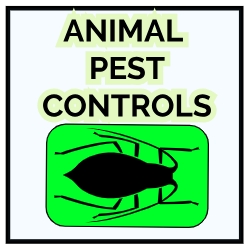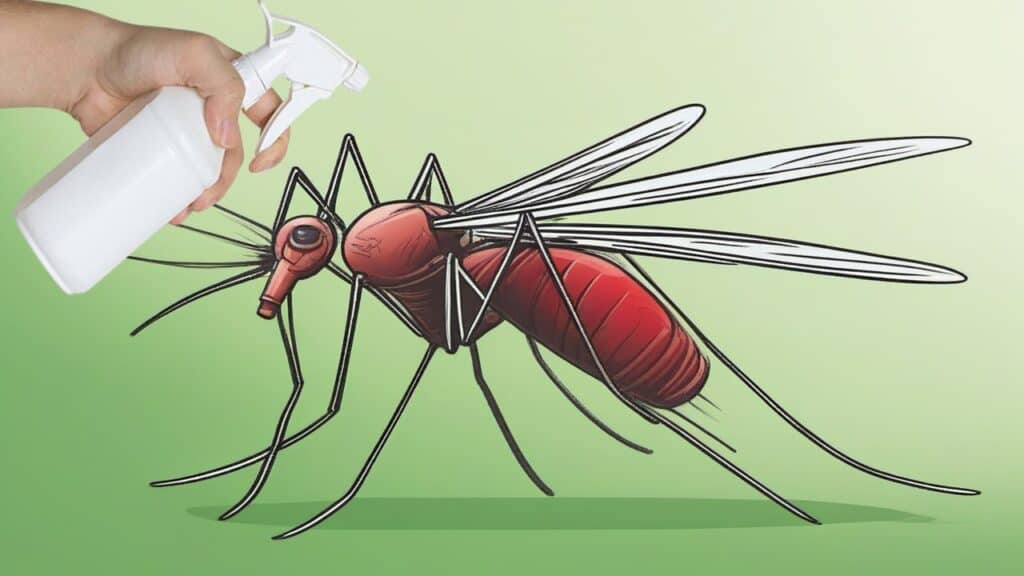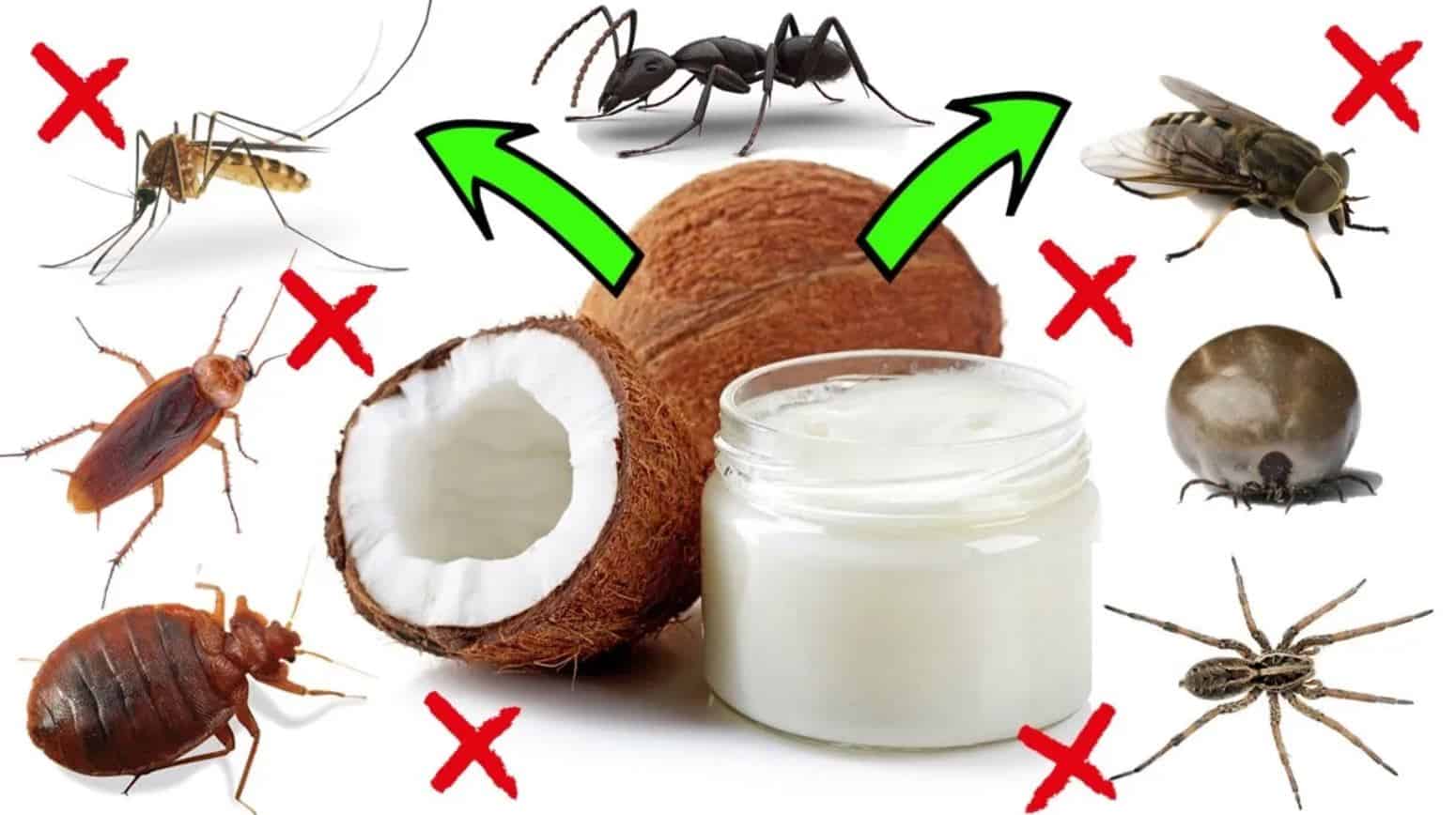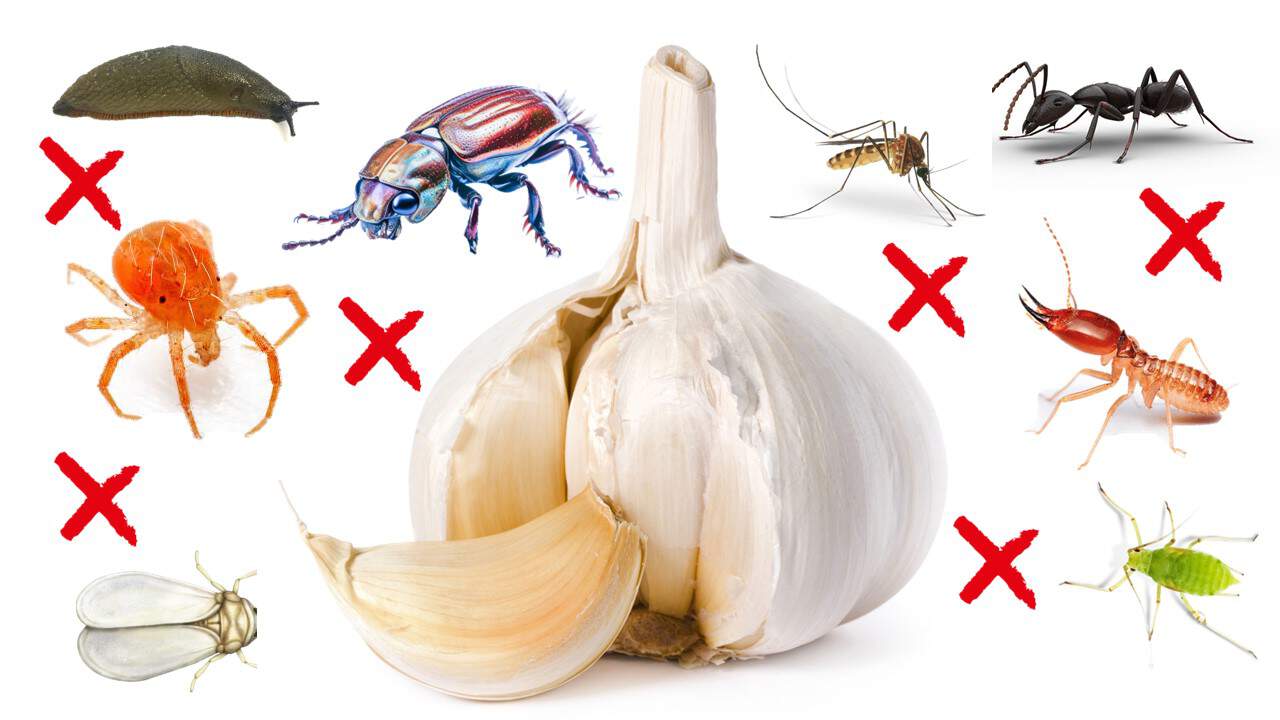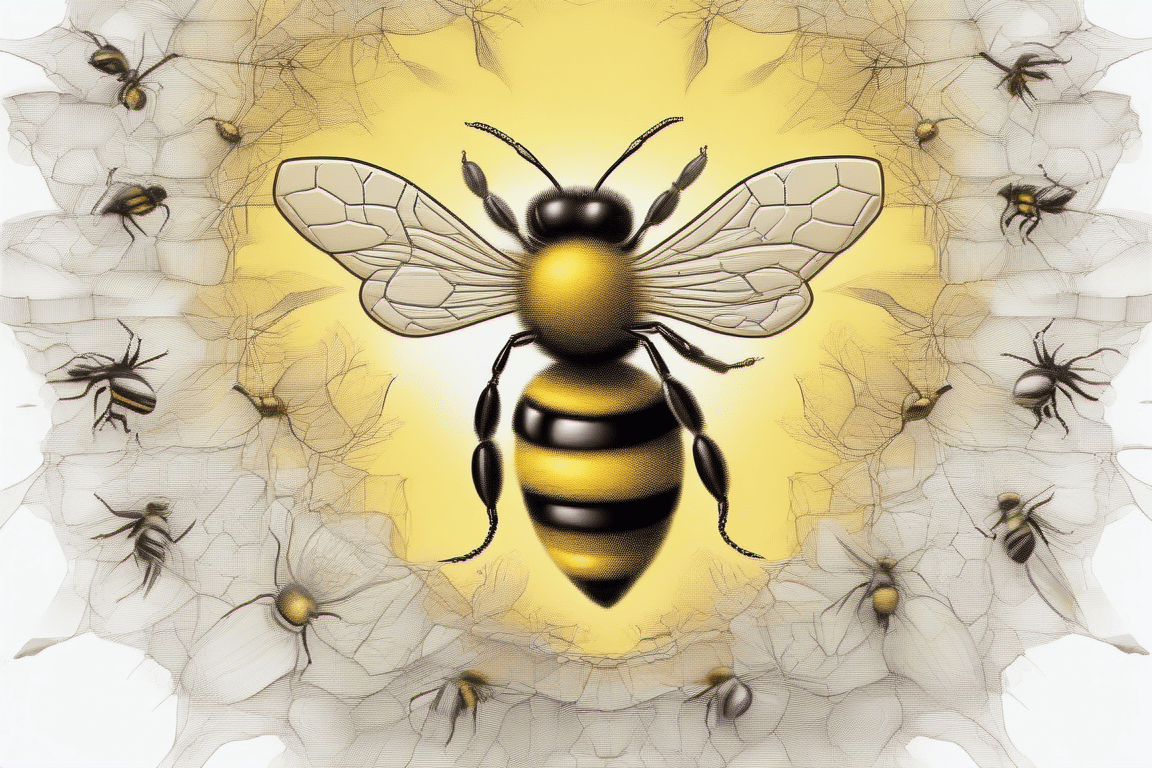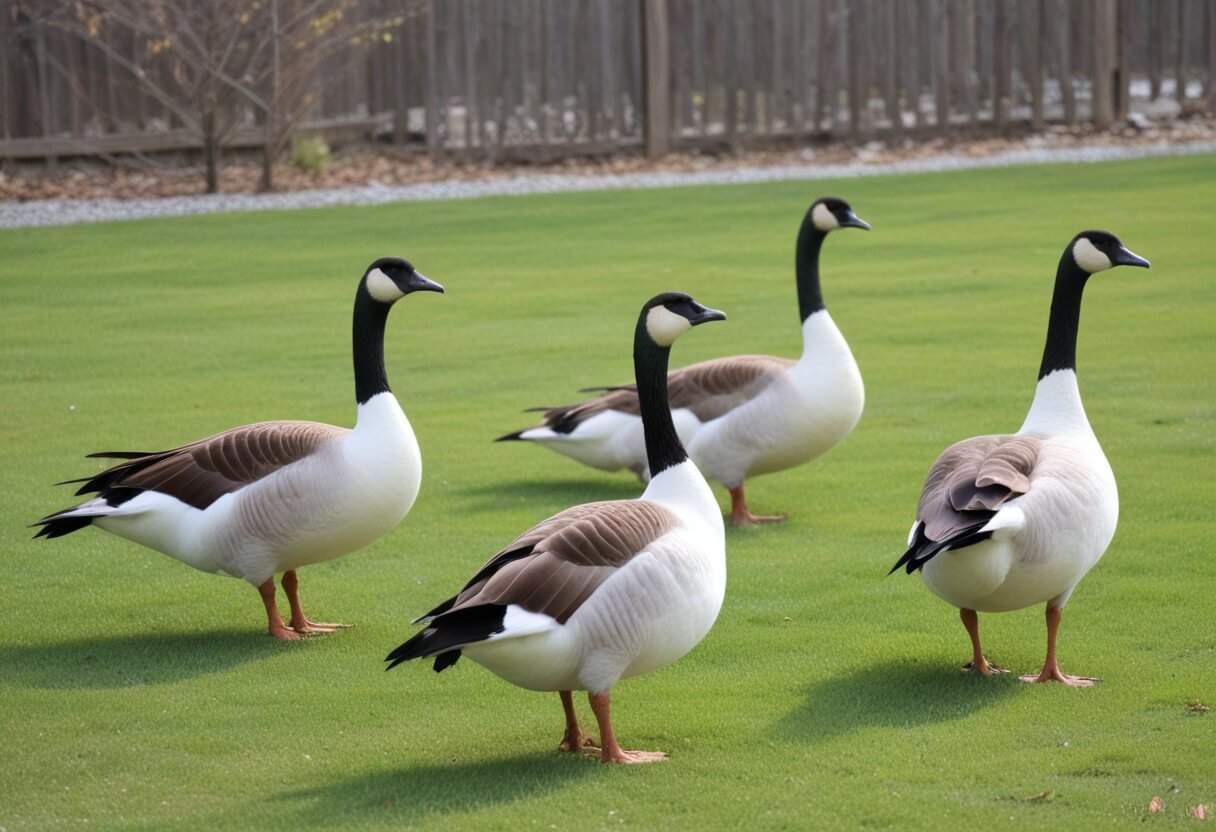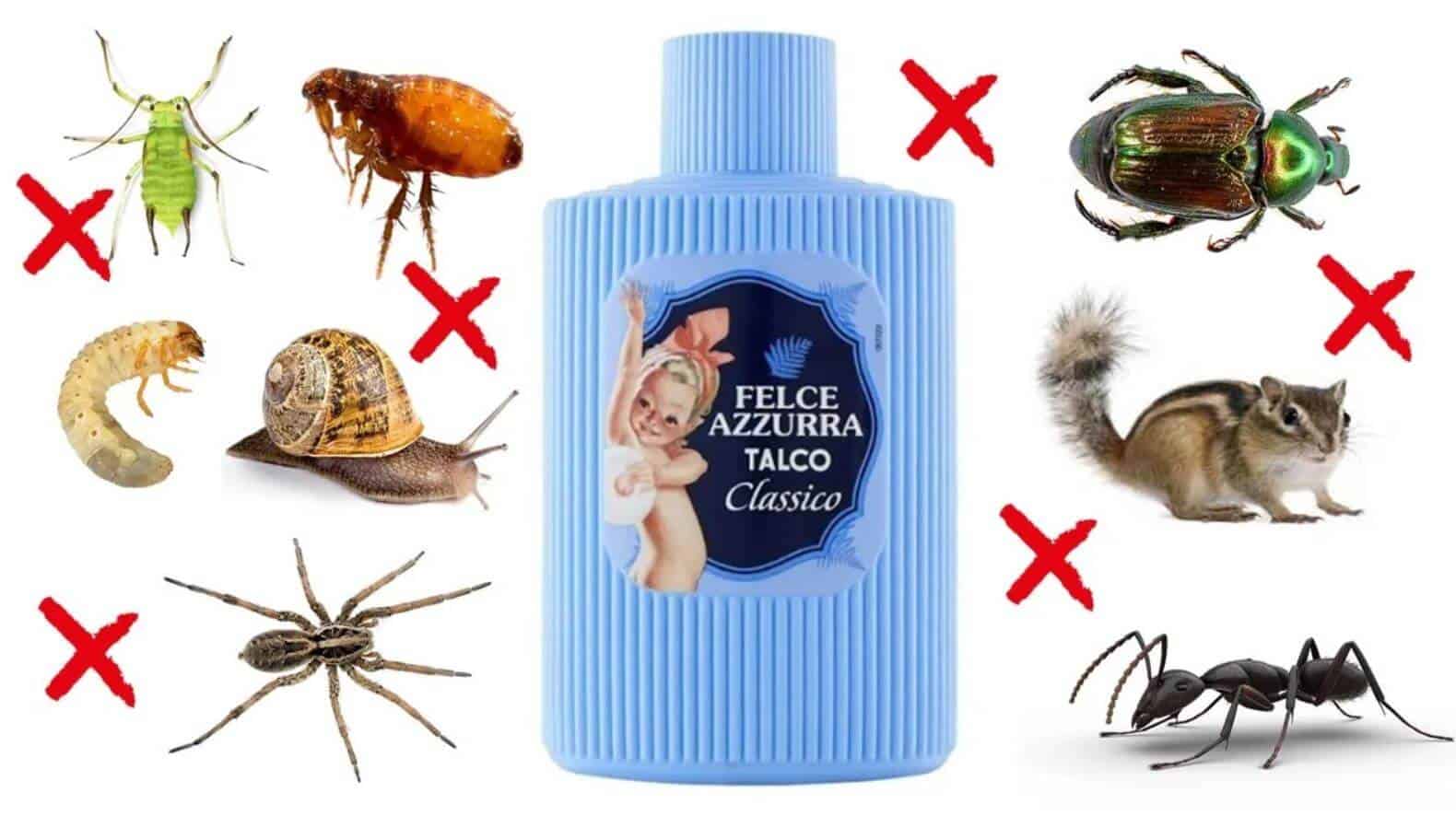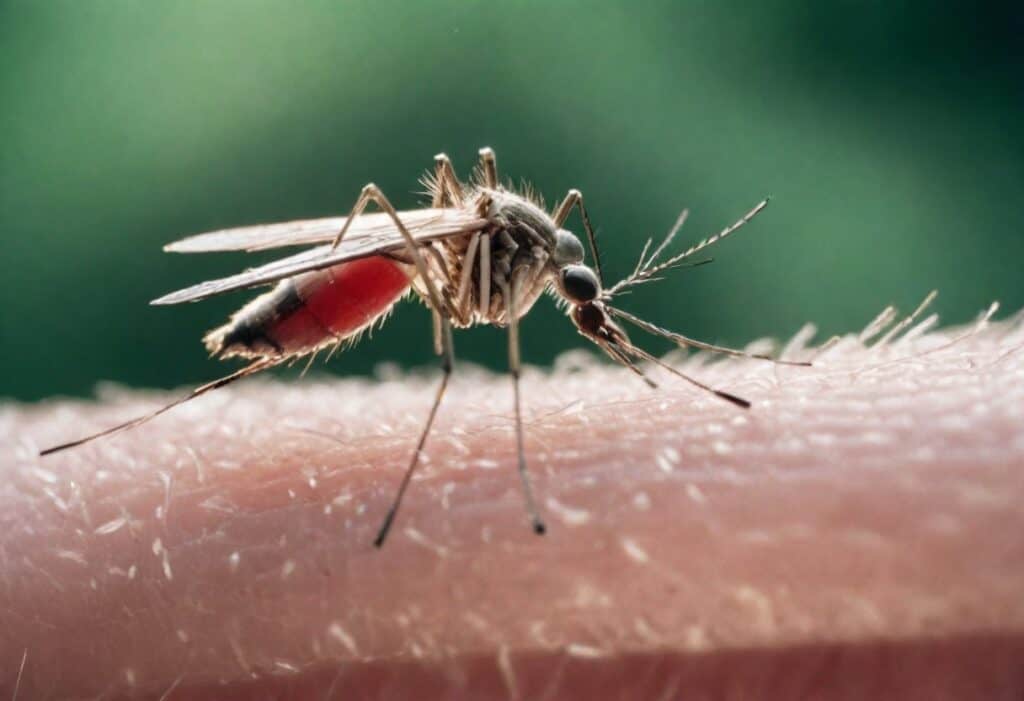Are you tired of being a buffet for midges and mosquitoes?
Brace yourself for an epic battle against those bloodsucking pests as we reveal the ultimate arsenal of natural repellents that will make them flee in terror.
You’ll bid farewell to itchy bites and hello to peaceful evenings outdoors. We’ve got insider tips to keep these annoying insects at bay using ingredients from Mother Nature.
From lavender oil to citronella candles, consider this your survival guide in the war against bugs! Don’t allow those bugs to ruin your summer. Watch now and reclaim your indoor and outdoor sanctuary!
Table of Contents
What are Midges and Mosquitoes?
Midges are small, delicate insects that belong to the family Chironomidae. They are prevalent in damp environments such as marshes, ponds, and lakes.
These tiny creatures have a slender and elongated body with long legs and two pairs of wings. Midges typically measure 1 to 5 millimeters in length, making them barely visible to the naked eye.
These insects have a distinctive segmented body covered in fine hairs. Their wings are transparent and veined, allowing them to fly gracefully through the air.
Besides, they have large compound eyes that provide excellent vision for navigating their surroundings.
Midges are infamous for their swarming habits. They tend to form dense clouds or clusters near bodies of water during mating season.
Male midges often gather together in these groups and perform an elaborate dance-like flight pattern to attract females for mating purposes.
Despite their harmless appearance, midges can be bothersome due to their tendency to bite humans and animals. While only female midges have mouthparts capable of biting, these bites can cause skin irritation and discomfort for some individuals.
Thankfully, various natural repellents can deter midges from landing on you or your pets during outdoor activities.
Mosquitoes are tiny insects that belong to the Culicidae family. They have a slender body with six long, thin legs and wings.
The size of mosquitoes can vary depending on the species, but they typically range from 0.12 to 0.35 inches (3 to 9 mm) in length.
These tiny creatures come in various colors, such as brown, black, or gray. A defining characteristic of mosquitoes is their proboscis – a long, needle-like mouthpart used for feeding on the blood of animals and humans.
Female mosquitoes have an additional structure called palps near their proboscis that helps them sense chemicals.
Besides, these bloodsucking pests are infamous for their buzzing sound when flying due to the rapid flapping of their wings. They are most active during dusk and dawn when the temperature is low.
These pests also prefer it when the wind is calm. Female mosquitoes are attracted to certain scents from humans and other animals as they search for a blood meal needed for egg production.
Male mosquitoes feed on nectar and plant juice, unlike the females.
What are the Natural Repellents to Eliminate Midges and Mosquitoes?
1. Citronella
Citronella oil is derived from the leaves and stems of certain types of grass, and it’s effective against these insects due to its strong aroma.
When used in candles or diffusers, it masks the scents that attract midges and mosquitoes.
Citronella does not contain harmful chemicals, making it safe for humans and pets. Additionally, citronella has a pleasant citrus-like scent that many people find refreshing, unlike other chemical-based insecticides that can have a strong and unpleasant odor.
These qualities make citronella ideal for those who prefer natural alternatives to synthetic repellents. While citronella can be effective in repelling midges and mosquitoes, its effectiveness may vary depending on concentration and application method.
Some individuals may need to reapply it outdoors in heavily infested areas. Nonetheless, citronella remains one of the top choices for those seeking a natural solution to keep pesky insects at bay.
2. Lemon eucalyptus oil
Lemon eucalyptus oil, derived from the lemon-scented gum tree, is a powerful natural repellent against midges and mosquitoes.
It contains a compound called PMD (para-menthane-3,8-diol), an effective repellent for these insects.
Research has shown that lemon eucalyptus oil can provide protection similar to synthetic insect repellents like DEET.
An advantage of using lemon eucalyptus oil as a repellent is its pleasant smell. Unlike many other insect repellents with strong and unpleasant odors, lemon eucalyptus oil emits a refreshing citrus scent.
This quality makes it more enjoyable to use on your skin or in outdoor areas where you want to ward off bugs. Besides, lemon eucalyptus oil is safe for most individuals when used as directed.
To use lemon eucalyptus oil – dilute it with a carrier oil, such as coconut or almond oil. This dilution prevents skin irritation. Mix 10-15 drops of lemon eucalyptus oil with every two tablespoons of carrier oil.
Apply the mixture onto exposed areas of the skin before heading outdoors.
Another way to use lemon eucalyptus oil is to make your spray repellent. Mix equal parts of water and witch hazel in a spray bottle and add around 30-40 drops of lemon eucalyptus essential oil.
Shake well before each use and apply it generously onto clothing and exposed skin to repel midges and mosquitoes.
3. Lavender oil
Lavender oil is a famous natural remedy for repelling midges and mosquitoes due to its strong scent and specific properties.
The strong fragrance of lavender oil masks the attractive scents these insects are naturally drawn to, making it difficult to locate their human targets.
Lavender also contains compounds such as linalool and eucalyptol, which are toxic to midges and mosquitoes when they come into contact with them. When applied topically or diffused in the air, lavender oil is a powerful mosquito repellent that confuses their sense of smell.
Midges and mosquitoes rely on their olfactory receptors to locate their prey by detecting carbon dioxide emissions, body heat, sweat, and other chemicals in humans.
However, the overpowering smell of lavender oil interferes with this process, deterring these insects from approaching. Studies have shown that midges and mosquitoes have an aversion to lavender oil scent.
When exposed to lavender oil or its extracts, it disrupts the nervous system leading to paralysis or death in some cases.
4. Peppermint oil
Peppermint oil is a natural repellent that can ward off midges and mosquitoes.
Its aroma is a deterrent, making it difficult for these pests to locate their human targets. We derive this essential oil from the peppermint plant, which contains high levels of menthol, an active compound with insect-repelling properties.
When applied topically or diffused in the air, peppermint oil creates an unfavorable environment for midges and mosquitoes, reducing their presence.
Moreover, peppermint oil has additional benefits beyond repelling insects. It possesses analgesic properties that can relieve itching and irritation caused by bug bites.
Applying diluted peppermint oil to affected areas can soothe the skin and alleviate discomfort.
This versatile essential oil has a cooling effect that offers a refreshing sensation, making it ideal for hot summer months when mosquito activity is at its peak.
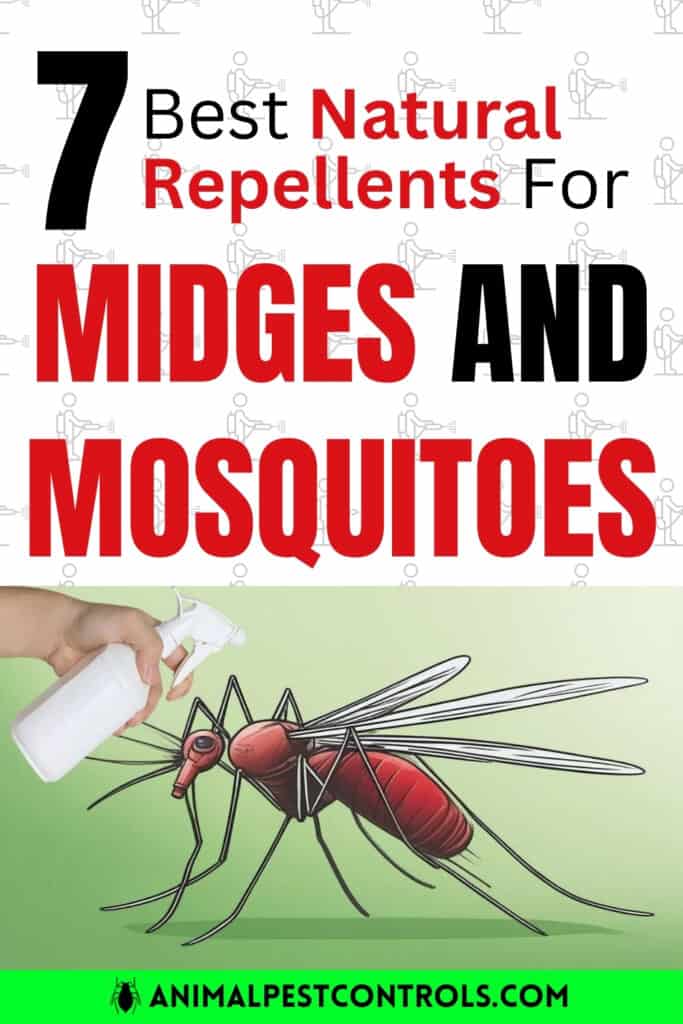
5. Catnip oil and witch hazel
We extract catnip oil from the leaves of the catnip plant.
It contains nepetalactone, an active compound that has powerful insect-repellent properties.
This oil is more effective than DEET, a common chemical in many commercial insect repellents. Catnip oil can provide long-lasting protection against midges and mosquitoes when applied topically.
Witch hazel is a natural astringent that soothes irritated skin and repels insects. It contains tannins which act as natural deterrents for these pesky bugs. Mix catnip oil with witch hazel in a spray bottle.
The ratio should be 10-15 drops of catnip oil for every ounce of witch hazel. Spray it onto your skin or clothing before going outdoors. Cover all exposed areas thoroughly.
This natural repellent protects against midges and mosquitoes without harsh chemicals or toxins.
6. Cinnamon oil
Cinnamon oil is extracted from the bark of cinnamon trees and used for its insect-repellent properties. The aroma of cinnamon is a powerful deterrent, keeping these annoying pests at bay.
A component in cinnamon oil that makes it an effective repellent is cinnamaldehyde. This compound has potent mosquito-repellent properties, making it an ideal natural alternative to chemical-based insecticides.
Even so, cinnamon oil contains eugenol, which possesses antifungal and antibacterial properties, providing additional protection against harmful microorganisms.
To use cinnamon oil as a repellent – mix a few drops with water or carrier oil such as coconut or almond oil and apply it directly onto exposed skin.
Alternatively, add a few drops to a diffuser or create homemade candles infused with cinnamon oil to keep midges and mosquitoes at bay indoors.
Cinnamon oil is an excellent choice for those looking for a natural solution to repel these pesky insects due to its pleasant scent and powerful repellent qualities.
7. Tea tree oil
Tea tree oil, derived from the leaves of the Australian tea tree, is a famous repellent for midges and mosquitoes. Its strong scent is a deterrent, keeping these pesky insects at bay.
Tea tree oil creates a barrier that repels midges and mosquitoes, reducing the risk of bites and potential infections.
In addition to its repellent properties, tea tree oil has antiseptic and anti-inflammatory qualities, making it excellent for soothing mosquito bites or preventing infections from scratching.
Dilute tea tree oil with carrier oil, such as coconut or olive oil, before applying it all over your body or affected area.
The antimicrobial properties of tea tree oil help reduce swelling and irritation caused by insect bites.
Conclusion
Mother Nature has your back when warding off those pesky midges and mosquitoes! These natural repellents are effective but also safe for you and the environment.
From the refreshing scent of citronella to the powerful properties of lavender and eucalyptus, there is a solution for everyone.
So next time you plan an outdoor adventure or want to enjoy a peaceful evening in your backyard, ditch the chemical-laden sprays and opt for these natural alternatives.
Trust me! Your skin will thank you. And those insects won’t know what hit them! Embrace the power of Mother Nature and keep those bugs at bay.
